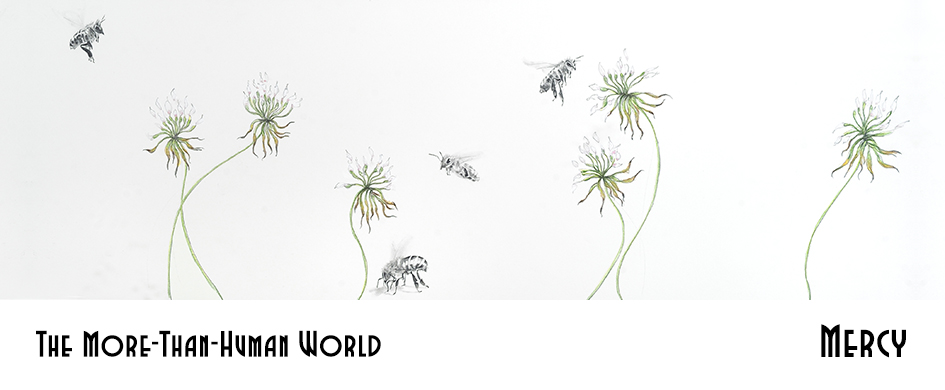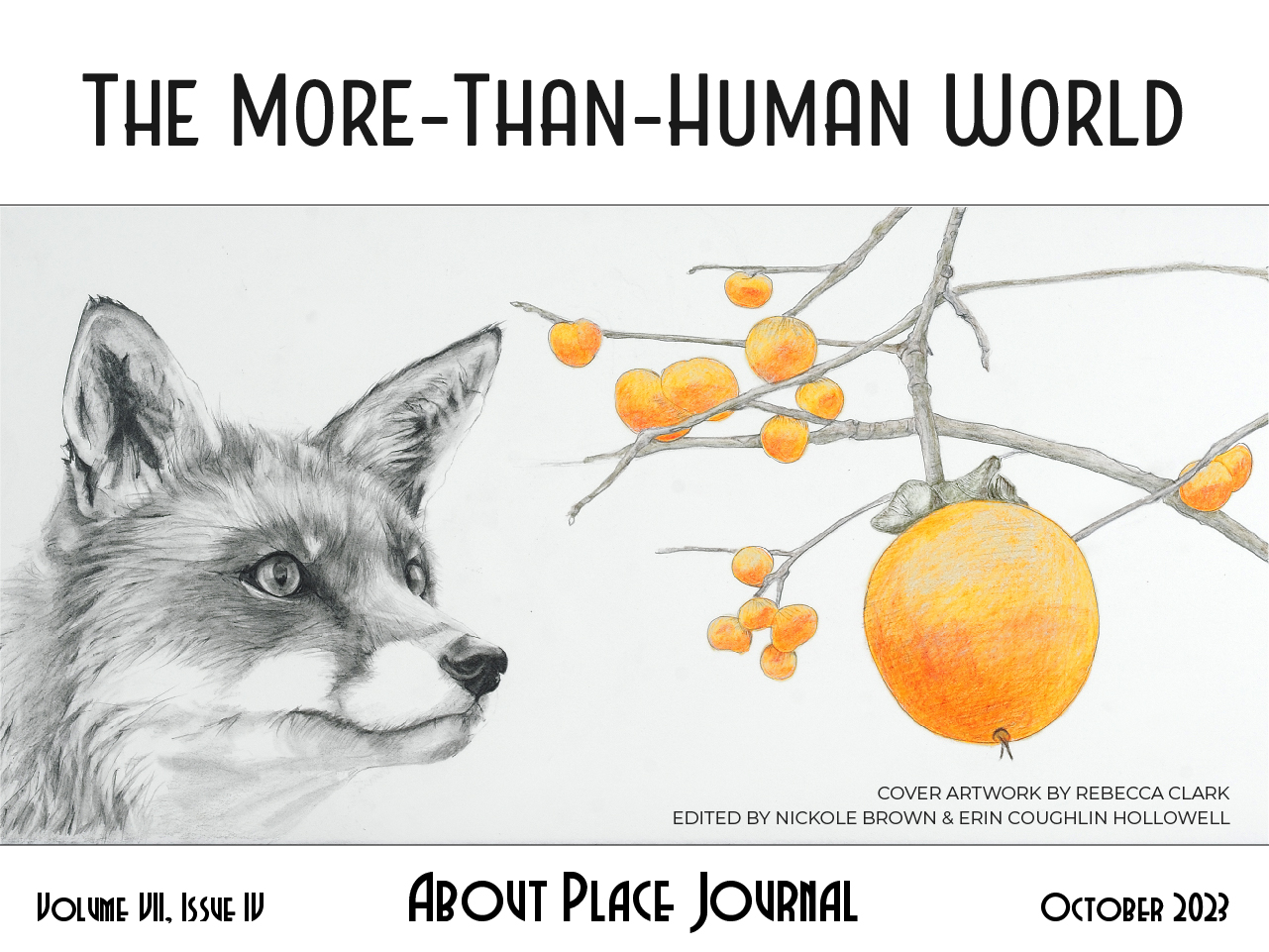After he told me I wasn’t dedicated enough to our life together, after I started believing my ideas were stupid, before I threw and broke the antique chair, before I told him he had to go, I was walking with his dog outside the farmhouse we shared.
Musky and earthy, unmoving and decompository, the smell of oyster mushrooms overtook me on this frigid walk before sunrise. It’s true that our other senses are heightened when our eyesight is diminished. Was it the smell of the mushrooms or another sense that led me to the fallen cottonwood log in the tree grove?
It was wintertime in Kentucky, with a lot of cold, gray and wet to look forward to through March—the perfect conditions for fungi to thrive, yet these wild mushrooms managed to surprise me. Come early winter, there is little green left in the tree grove. It’s brown bark, brown leaves, gray sky. With my old life inside the house falling apart, I wasn’t thinking about new life that may be fruiting outside.
As I followed the perfumy rotten scent from my regular walking path into the tree grove, I realized the cottonwood log was covered in mushrooms. I don’t remember exactly, but it’s likely that I let out a few curse words in delight. The mushrooms sure looked like deliciously edible Pleurotus ostreatus, oyster mushrooms, to my curious but untrained eye. In the glow of my cell-phone flashlight, I plucked one of the dozens of creamy-white mushroom shelves and regrouped with the dog to finish our walk. What started as a glum early morning slog—I only ever left the house that early for the dog—took on a greater purpose.
Back inside the house, I placed the fresh mushroom on a piece of white paper with a large bowl inverted overtop. My then-partner was away. There was no one around to interrupt this experiment.
Later that day, I removed the bowl and lifted the mushroom to find a delicate, light-purple spore print left behind by its gills.
When a mushroom is starved of light, it’s fooled into thinking death is imminent, and it drops its spores as a last-ditch effort to spread its genes and produce more of its kind. Please note this is not a metaphor, or not the one a reader may be expecting. Maybe I was being starved of light in that relationship with the insults and the thrown chair, but I was not looking for the opportunity to create more life; I was trying to reclaim my life.
The spore print is known the world over as a reliable identifier for fungi. Because I don’t know much about foraging mushrooms, I was careful to get a positive ID. “White to faintly yellowish or lilac” was the spore print range named by three online sources for this particular species of mushroom. Those are some wide color options, I agree, but the print this mushroom left was so distinctly lilac that I went all-in for a 10-pound harvest.
Fungi break down what’s no longer living—sometimes what’s still living but sick and dying. We have the option to take food and medicine from what’s left. That relationship—the one with the dog’s human—was no longer living. It had fallen, and it needed to be broken down, back into its whole parts.
Oyster mushrooms are “the only vegan food that can itself eat meat,” according to an article in Scientific American. They lure in nematodes—roundworms—then poison and paralyze them, inject their filaments into them, dissolve them, absorb them.
By the time I found the mushrooms, I’d been teetering between staying on this land and leaving it, between saving myself by staying or saving myself by running, for a month or more. We—the person who said I was too easily upset and I—had moved to that land together not a year before. Almost from the beginning, the tension and harsh words made it obvious that only one of us would get to stay.
That December morning, the oyster mushrooms on the fallen cottonwood tree lured me in to the tree grove. I felt like a nematode, a roundworm, having parasitized the relationship before me or having allowed myself to be parasitized by it. Both and either, depending on the day. Both and either, depending on whose eyes you were looking through.
The predawn winter walk heightened my senses—the smelling, the hearing, the knowing. The mushrooms assured me of the abundance this place held for me, even during this drab season when very little else was producing. If I stayed, they would, too. They would lure in the parasites and break down the materials no longer needed, the dead and dying, and offer up what is left to feed me.


